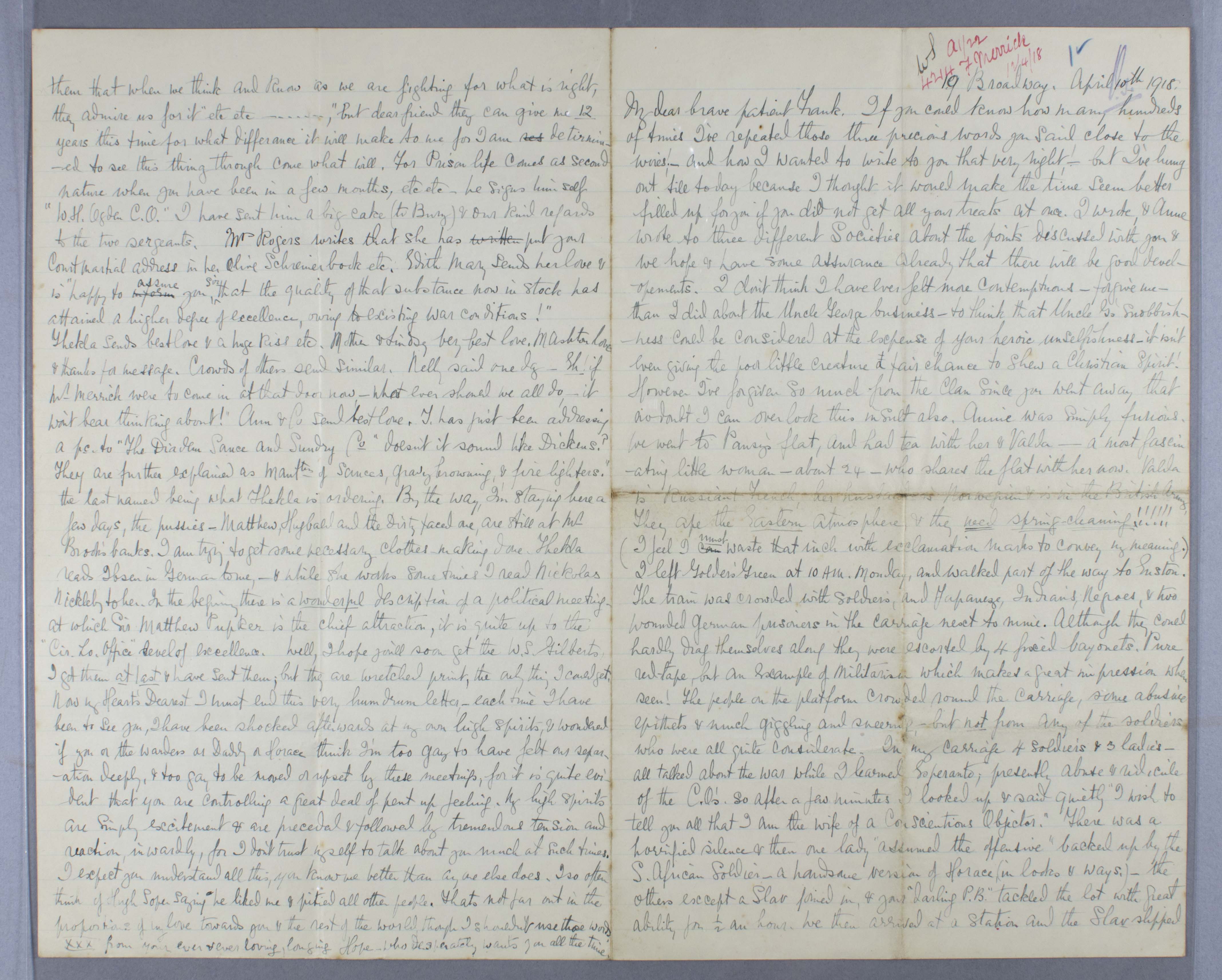Paris-Manchester 1918
Conservatoires in time of war
10th April 1918 (Hope Squire)
Hope gives an account of a train journey in London. The train was full of soldiers, including German prisoners. She found herself defending Frank’s position as a Conscientious Objector against criticism from some of her fellow passengers.
Credit: University of Bristol Library, Special Collections (DM2103)
Transcription
…I left Golders Green at 10am, Monday, and walked part of the way to Euston. The train was crowded with soldiers, Japanese, Indians, Negroes & two wounded German prisoners in the carriage next to mine. Although they could hardly drag themselves along they were escorted by 4 fixed bayonets. Pure red tape, but an example of Militarism which makes a great impression when seen! The people on the platform crowded round the carriage, some abusive epithets and much giggling and sneering – but not from any of the soldiers who were all quite considerate. In my carriage 4 soldiers and 3 ladies – all talked about the war while I learned Esperanto, presently abuse and ridicule of the C.Os. So after a few minutes I looked up and said quietly “I wish to tell you that I am the wife of a Conscientious Objector”. There was a horrified silence & then one lady “assumed the offensive” backed up by the S. African Soldier… The others except a Slav and your darling “P.B.” tackled the lot with great ability for ½ an hour. We then arrived at a station and the Slav slipped out of the train & returned with a cup of tea for me. The other men then rushed out & got some tea for the other ladies, & themselves. I had previously given my bottle of coffee with milk & sugar to a young soldier, who had been travelling since early morning. The arguments continued – these men had only come across members of the Non. Com: Corps, & when I explained that a real C.O. would not be in the N.C.C. they were quite at a loss – in an hour all were my very good friends & eventually all expressed real appreciation of the real C.Os whom they knew nothing about and declared that they could not stand Solitary Confinement, even for a week. They were all very nice men, but had never thought much & knew very little outside their own daily doings…





